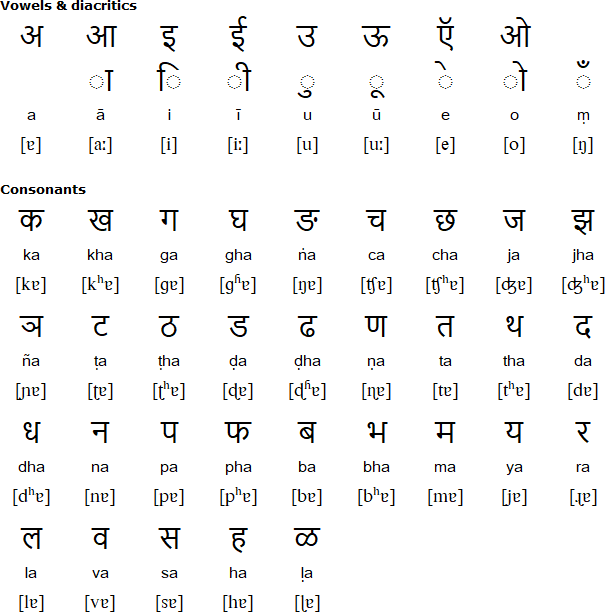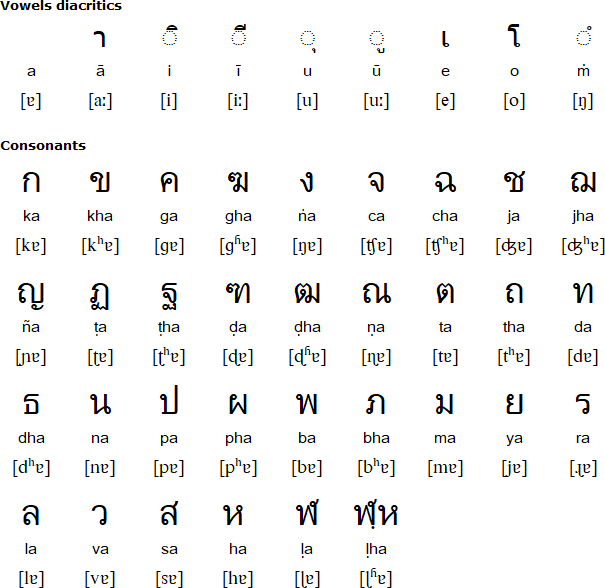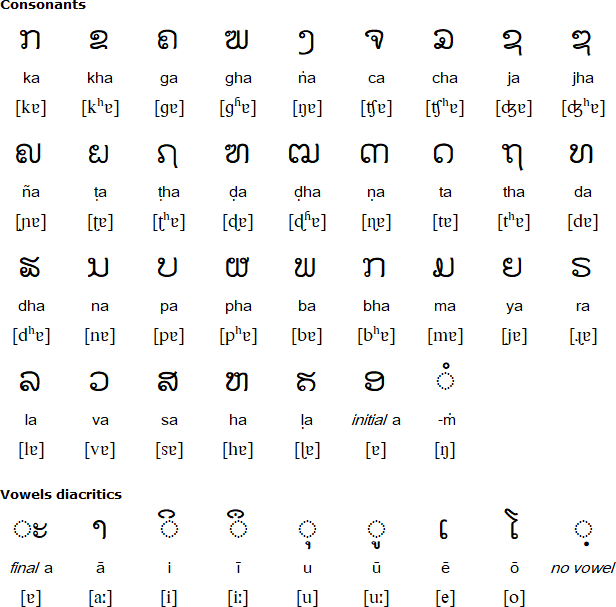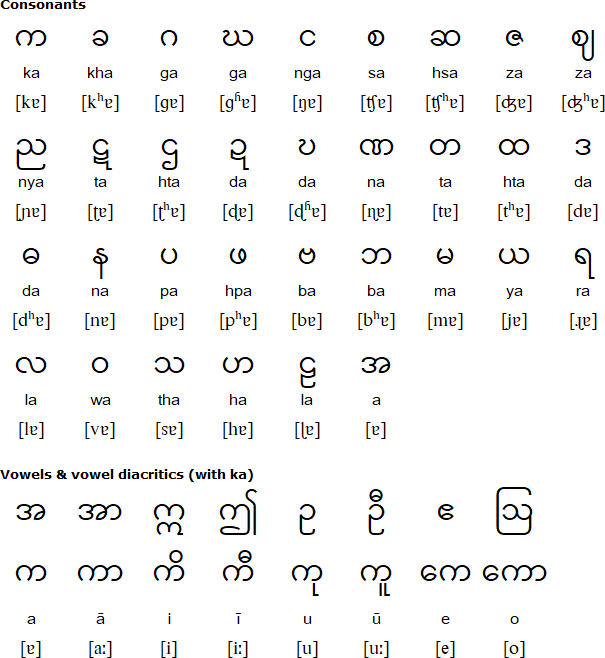Pāli is the language of the scriptures of Theravada Buddhism, (the Pāli Canon or the Tipitaka in Pāli), which were written in Sri Lanka during the 1st century BC. Pāli has been written in a variety of scripts, including Brahmi, Devanāgarī and other Indic scripts, and also using a version of the Latin alphabet devised by T. W. Rhys Davids of the Pāli Text Society.
The name Pāli means "line" or "(canonical) text", and probably comes from the commentarial traditions, wherein the "Pāli" (in the sense of the line of original text quoted) was distinguished from the commentary or the vernacular following after it on the manuscript page. There are a number of ways to spell the name of the language: Pali, Pāli, Paḷi, Pāḷi, all four of which are found in textbooks.
Today Pāli is studied mainly by those who wish to read the original Buddhist scriptures, and is frequently chanted in rituals. There are non-religious text in Pāli including historical and medical texts. The main areas where Pāli is studied are Myanmar, Sri Lanka, Thailand, Laos and Cambodia.




Download alphabet charts for Pali
Manopubbaṅgamā dhammā, manoseṭṭhā manomayā;
Manasā ce paduṭṭhena, bhāsati vā karoti vā;
Tato nam dukkhaṁ anveti, cakkaṁ'va vahato padaṁ.
Mind precedes all mental states. Mind is their chief; they are all mind-wrought. If with an impure mind a person speaks or acts suffering follows him like the wheel that follows the foot of the ox.
(Translated by Acharya Buddharakkhita)
Appam pi ce saṃhitaṃ bhāsamāno dhammassa hoti anudhammacārī, rāgañ ca dosañ ca pahāya mohaṃ sammāppajāno suvimuttacitto, anupādiyāno idha vā huraṃ vā sa bhāgavā sāmaññassa hoti.
Even if he recites a little of scriptures, but lives in truth according to the Dharma, having abandoned lust, hatred and delusion, has the right knowledge, with a well emancipated mind, is not attached to anything, either in this world, nor in the other one, he shares the [blessings of] monkshood. (Source: of Digital Library & Museum of Buddhist studies)
Hear a recording of this text by Oscar A. Solari
The information on this page comes mainly from Oscar A. Solari.
Information about the Pāli language
http://en.wikipedia.org/wiki/Pali_language
https://worldschoolbooks.com/pali-language/
https://www.skyknowledge.com/thai-pali.htm
https://buddhistuniversity.net/courses/pali-primer
https://viss.wordpress.com/2015/05/17/how-to-transcribe-paḷi-in-lanna-and-burmese/
Tipitaka Network - includes information about the Pāli language and some lessons
http://www.tipitaka.net/pali/
Pāli Text Society
https://palitextsociety.org/
Pāli-English dictionary
http://dsal.uchicago.edu/dictionaries/pali/
Aka-Jeru, Angika, Athpare, Avestan, Awadhi, Bahing, Balti, Bantawa, Belhare, Bhili, Bhumij, Bilaspuri, Bodo, Bhojpuri, Braj, Car, Chamling, Chhantyal, Chhattisgarhi, Chambeali, Danwar, Dhatki, Dhimal, Dhundari, Digaro Mishmi, Dogri, Doteli, Gaddi, Garhwali, Gondi, Gurung, Halbi, Haryanvi, Hill Miri, Hindi, Ho, Jarawa, Jaunsari, Jirel, Jumli, Kagate, Kannauji, Kham, Kangri, Kashmiri, Khaling, Khandeshi, Kharia, Khortha, Korku, Konkani, Kullui, Kumaoni, Kurmali, Kurukh, Kusunda, Lambadi, Limbu, Lhomi, Lhowa, Magahi, Magar, Mahasu Pahari, Maithili, Maldivian, Malto, Mandeali, Marathi, Marwari, Mewari, Mundari, Nancowry. Newar, Nepali, Nimadi, Nishi, Onge, Pahari, Pali, Pangwali, Rajasthani, Rajbanshi, Rangpuri, Sadri, Sanskrit, Santali, Saraiki, Sirmauri, Sherpa, Shina, Sindhi, Sunwar, Sylheti, Tamang, Thakali, Thangmi, Wambule, Wancho, Yakkha, Yolmo
Akha, Bisu, Isan, Kuy, Northern Khmer, Northern Pwo, Nyah Kur, Pali, Sanskrit, Tai Yo, Thai, Thai Song, Urak Lawoiʼ
Katu, Khmu, Kuy, Lao, Pali, TaʼOi
Aiton, Akha, Arakanese, Burmese, Eastern Pwo Karen, Jingpho, Khamti, Marma, Pali, Palaung, Pa'O, S'gaw Karen, Tai Laing, Tai Phake, Western Pwo
Page last modified: 26.06.25
[top]
You can support this site by Buying Me A Coffee, and if you like what you see on this page, you can use the buttons below to share it with people you know.

If you like this site and find it useful, you can support it by making a donation via PayPal or Patreon, or by contributing in other ways. Omniglot is how I make my living.
Note: all links on this site to Amazon.com, Amazon.co.uk
and Amazon.fr
are affiliate links. This means I earn a commission if you click on any of them and buy something. So by clicking on these links you can help to support this site.
[top]